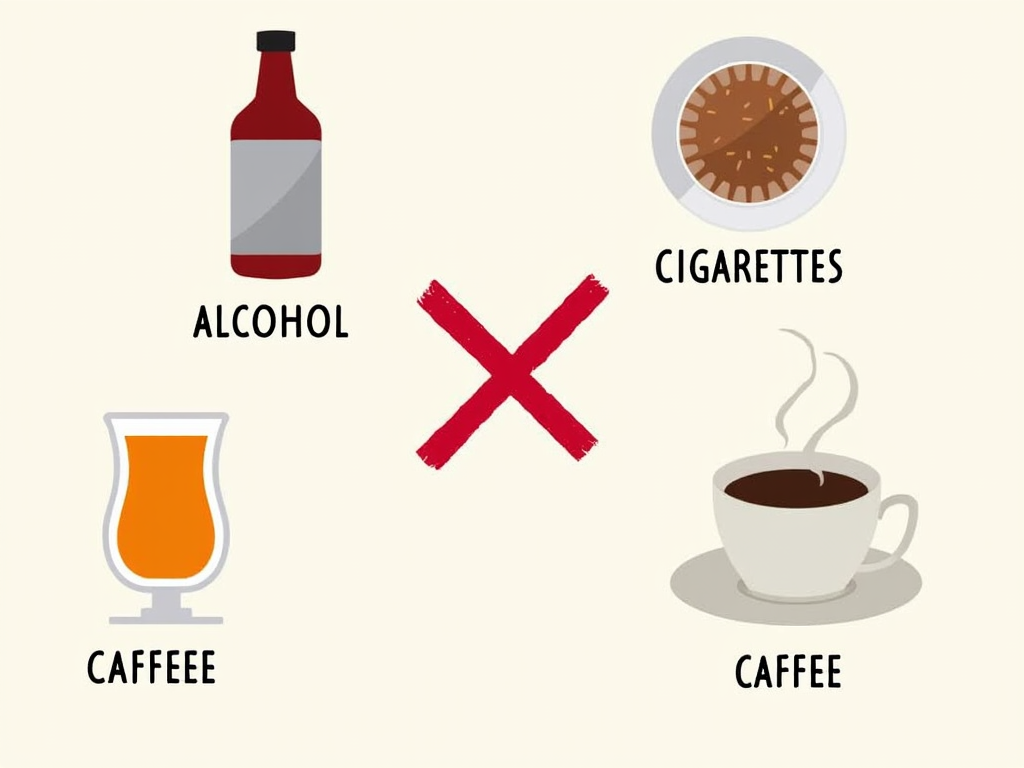Lifestyle Changes That Boost Fertility Naturally
March 17, 2025, 7:46 a.m.
Struggling with fertility can be a challenging and emotional journey for many couples. While medical interventions are available, simple lifestyle changes can significantly boost your chances of conception naturally. In this comprehensive guide, we'll explore how diet, exercise, stress management, sleep, and other factors can enhance your fertility. Whether you're just starting to think about having a baby or have been trying for a while, these tips can help you take control of your fertility journey.

Diet and Nutrition for Fertility
What you eat plays a crucial role in your reproductive health. A balanced diet rich in specific nutrients can improve egg quality, sperm health, and overall fertility. Here are some key dietary changes to consider:
- Leafy Greens: Spinach, kale, and other greens are packed with folate, which is essential for fetal development.
- Fatty Fish: Salmon and sardines provide omega-3 fatty acids, which can regulate hormones and improve blood flow to reproductive organs.
- Nuts and Seeds: Walnuts and flaxseeds are great sources of healthy fats and antioxidants.
- Whole Grains: Quinoa, brown rice, and oats help stabilize blood sugar levels, which is important for hormonal balance.
- Berries: Blueberries and strawberries are rich in antioxidants that protect reproductive cells from damage.
Incorporate these foods into your daily meals to give your body the nutrients it needs to conceive.

Exercise and Physical Activity
Regular physical activity is another cornerstone of fertility. Exercise helps maintain a healthy weight, reduces stress, and improves circulation, all of which are vital for reproductive health. However, balance is key—too much or too little exercise can have the opposite effect.
- Moderate Exercise: Activities like walking, swimming, or yoga are ideal. Aim for at least 30 minutes a day, five days a week.
- Strength Training: Light weightlifting can help build muscle and boost metabolism.
- Avoid Overexertion: High-intensity workouts or excessive endurance training can disrupt hormonal balance and reduce fertility.
Find an exercise routine that you enjoy and can stick to consistently. Remember, the goal is to feel energized, not exhausted.

Stress Management Techniques
Stress is a common factor that can negatively impact fertility. High stress levels can disrupt your hormonal balance and make it harder to conceive. Incorporating stress management techniques into your daily routine can make a significant difference.
- Meditation: Even 10 minutes a day can help calm your mind and reduce anxiety.
- Deep Breathing: Practice deep breathing exercises to lower cortisol levels.
- Journaling: Writing down your thoughts and feelings can be a therapeutic way to manage stress.
- Mindfulness: Engage in activities that keep you present, like gardening or painting.
Many women find that reducing stress through mindfulness practices can improve their fertility journey. It's about finding what works best for you and making it a habit.

Importance of Sleep
Quality sleep is often overlooked but is essential for fertility. Poor sleep can disrupt your circadian rhythm, leading to hormonal imbalances that affect ovulation and sperm production.
- Aim for 7-9 Hours: Ensure you get enough rest each night.
- Create a Sleep Routine: Go to bed and wake up at the same time every day.
- Optimize Your Sleep Environment: Keep your bedroom dark, quiet, and cool.
- Limit Screen Time: Avoid screens at least an hour before bed to improve sleep quality.
Imagine waking up feeling refreshed and ready to tackle the day—this isn't just a dream; it's a crucial step in boosting your fertility.

Avoiding Harmful Substances
Certain substances can severely impact fertility. To maximize your chances of conception, it's important to avoid:
- Alcohol: Even moderate consumption can affect fertility in both men and women.
- Smoking: Smoking damages reproductive cells and reduces fertility.
- Caffeine: High caffeine intake has been linked to miscarriage and reduced fertility.
- Environmental Toxins: Be mindful of exposure to chemicals in household products, plastics, and pesticides.
Making these changes can be challenging, but they are vital for creating a healthy environment for conception.

When to Seek Professional Help
While lifestyle changes can significantly boost fertility, they may not be enough for everyone. If you've been trying to conceive for over a year (or six months if you're over 35), it might be time to seek professional help.
- Fertility Testing: Understand the root cause of infertility.
- Personalized Fertility Treatment Plans: Work with a specialist to create a tailored approach.
- Fertility Treatments: Options like IVF or IUI may be recommended based on your situation.
Remember, seeking help is a sign of strength, not failure. Many couples have successfully conceived with the right support.

Conclusion
Boosting your fertility naturally is possible with the right lifestyle changes. By focusing on a healthy diet, regular exercise, stress management, quality sleep, and avoiding harmful substances, you can improve your chances of conception. Remember, every small step counts, and consistency is key. If you've been trying for a while without success, don't hesitate to seek professional help. Personalized fertility treatment plans can provide the support you need to achieve your dream of starting a family.